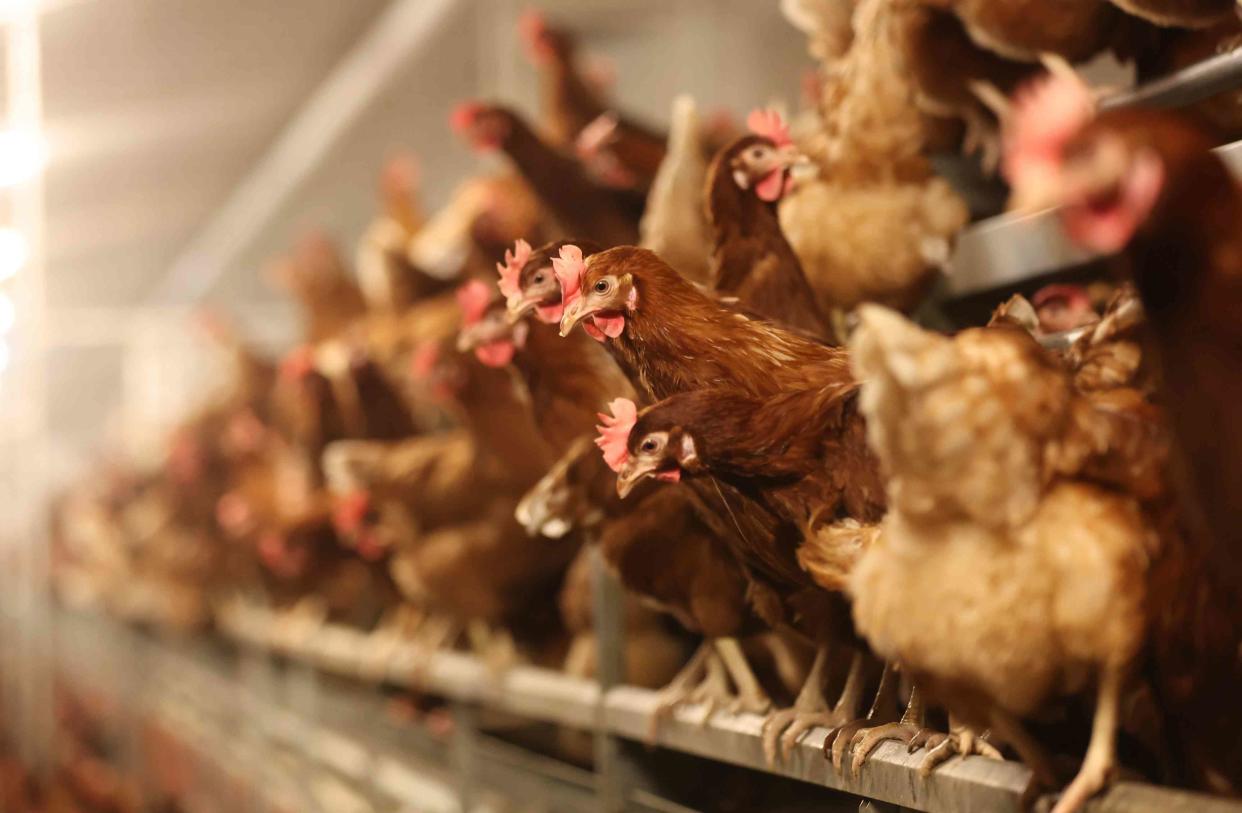Is It Safe to Consume Milk and Eggs During Bird Flu Outbreak?

Nathan Stirk / Getty Images
Fact checked by Nick Blackmer
Key Takeaways
The detection of the H5N1 bird flu strain in dairy cows across six states has led to heightened public health surveillance.
Health authorities say commercial milk is still safe because of pasteurization, which effectively neutralizes harmful pathogens.
Proper food safety practices, including cooking eggs and meat to recommended temperatures, can help prevent potential transmission of bird flu.
Last week, the Center for Disease Control and Prevention (CDC) advised healthcare providers to watch out for symptoms of avian flu in patients.
The bird flu strain H5N1, responsible for millions of bird deaths in recent years, has been detected in dairy cows in six states. However, health authorities say there is “no concern about the safety of the commercial milk supply” because dairy products are pasteurized.
A person in Texas recently contracted the H5N1 virus after exposure to sick dairy cows, marking the second human case in the United States. The first one was reported in 2022 in Colorado.
Although human infections are rare, prolonged or close contact with infected animals could pose a risk of transmission. What about consuming eggs or dairy products?
“We don’t consider this a significant public health concern at this time, but we’re watching it very closely. Things can change and they can change quickly,” said Keith Poulsen, DVM, PhD, a clinical associate professor of medical sciences at the University of Wisconsin-Madison School of Veterinary Medicine.
How Safe Is Milk in Light of Bird Flu?
Dairy cows are monitored using a computerized system that tracks health metrics and milk production. Sick cows are flagged and sent to the hospital pen for treatment, according to Poulsen.
He said milk from sick dairy cows is either “discarded or pasteurized and fed to calves.”
Even if infected milk from an asymptomatic cow got into the system, pasteurization would destroy any harmful pathogens, according to Jennifer J. Quinlan, PhD, a food safety expert and executive director of the Integrated Food Security Research Center at Prairie View A&M University in Texas.
Scientists are unsure if unpasteurized or raw milk can pass along the H5N1 virus, but raw milk can harbor various germs and is associated with miscarriages, kidney failure, and death. It is illegal in some states and generally not recommended by public health experts.
“There’s no information about avian flu in raw milk being able to make you sick. We just don’t have that data—it’s too new,” Quinlan told Verywell. She added that the safest bet is to stick to pasteurized milk.
Risks from raw cheese remain unknown. The Food and Drug Administration (FDA) requires a 60-day aging process for raw cheese to inactivate bacteria and viruses, but the agency recommends cheese producers refrain from using milk from infected or exposed cows.
Are Eggs Safe to Eat?
Because bird flu is highly contagious and deadly in chickens, it’s unlikely that any infected eggs would enter the food supply.
“We have control zones and we do diagnostic testing to permit movement of animals out of those control zones until the disease runs its course, and then we do our cleaning and sanitation of those facilities,” Poulsen said.
Even on the off chance that infected eggs reached supermarket shelves, proper food safety practices would destroy any bird flu pathogens. This means avoiding runny eggs and making sure egg dishes reach an internal temperature of 160. It’s also best to store eggs in the refrigerator at 40 or below for up to three weeks.
“There’s no reason to think there’s avian flu in eggs, but if there were, cooking it will get rid of it,” Quinlan said.
Is It Safe to Eat Chicken or Beef?
Poulsen said it’s still safe to eat beef and chicken.
“We don’t see it really in any beef cows or beef calves. Whether or not they’re being affected, they’re not showing any type of clinical signs. We’ve tested some, and we haven’t found anything,” he said.
For good measure, health experts recommend cooking chicken to an internal temperature of 165 to kill any germs, including potential avian flu viruses. Ground beef should be cooked to 160, while roasts and steaks should reach 145.
“There is no real reason to be concerned at this time,” Quinlan said. “They’re really trying to keep any contaminated food out of the food system.”
What This Means For You
Experts say you don’t need to worry about getting bird flu from chicken or pasteurized dairy products. Proper food handling and food safety strategies can reduce the risk of getting sick from bacteria or viruses in food.
Read the original article on Verywell Health.
